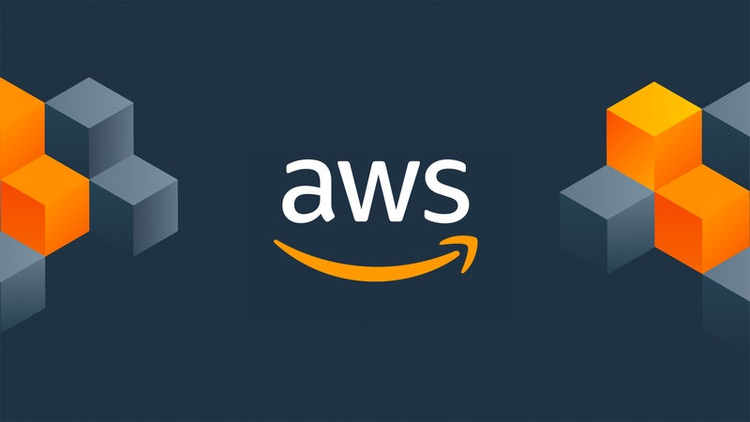
In today’s digital era, cloud computing has transformed how businesses manage and scale their IT infrastructure. One of the leading players in the cloud space is Amazon Web Services (AWS), a comprehensive and widely adopted cloud platform. AWS offers a variety of services that help organizations operate more efficiently, securely, and at a lower cost.
In this blog, we’ll explore what AWS cloud computing is, why it’s so popular, and how businesses are leveraging it to stay ahead in the competitive market.
What is AWS Cloud Computing?
AWS Cloud Computing refers to the suite of cloud services provided by Amazon that allows businesses and developers to host, manage, and scale their applications, storage, databases, and more over the internet. With AWS, companies can access these resources on-demand, meaning they don’t need to invest in costly hardware or maintain large data centers.
AWS offers a flexible, pay-as-you-go model that eliminates the need for up-front investments and allows businesses to only pay for what they use. This flexibility, combined with scalability, makes AWS an appealing option for companies of all sizes.
Key Features of AWS Cloud Computing
- Scalability: One of the standout features of AWS is its ability to scale resources up or down based on demand. Whether your traffic spikes during the holiday season or your website experiences a sudden surge of users, AWS ensures you only pay for the resources you actually use.
- Global Reach: AWS operates in multiple regions and availability zones across the globe. This global presence allows businesses to deliver content quickly to users, ensuring low-latency performance regardless of location.
- Security: Security is a top priority at AWS. The platform provides multiple layers of security, including encryption, identity and access management (IAM), and compliance with various international standards and certifications, making it a trusted choice for industries like finance and healthcare.
- Cost Efficiency: AWS enables businesses to reduce infrastructure costs by providing a pay-as-you-go pricing model. With no upfront investment and no long-term commitments, companies only pay for the compute, storage, and networking resources they use.
- Automation & Management Tools: AWS offers a wide range of management and automation tools, such as AWS CloudFormation, AWS Lambda, and AWS Elastic Beanstalk, allowing developers to easily automate infrastructure deployment and management.
Core AWS Services
AWS provides a vast range of cloud services that are divided into various categories. Here are some of the most commonly used services:
- Compute:
- Amazon EC2 (Elastic Compute Cloud): Provides resizable compute capacity in the cloud. EC2 instances can be used to host applications, run workloads, or build virtual machines for testing.
- AWS Lambda: A serverless computing service that lets you run code in response to events, without provisioning or managing servers.
- Storage:
- Amazon S3 (Simple Storage Service): A scalable object storage service that stores any amount of data, such as backups, files, and media.
- Amazon EBS (Elastic Block Store): Provides block-level storage volumes for EC2 instances.
- Databases:
- Amazon RDS (Relational Database Service): A managed relational database service that supports engines like MySQL, PostgreSQL, and Oracle.
- Amazon DynamoDB: A NoSQL database service for applications that require low-latency data access.
- Networking:
- Amazon VPC (Virtual Private Cloud): Allows you to create a private network within AWS and control network traffic.
- Amazon CloudFront: A Content Delivery Network (CDN) service that speeds up the delivery of web content globally.
- Machine Learning and AI:
- Amazon SageMaker: A platform for building, training, and deploying machine learning models.
- AWS Deep Learning AMIs: Pre-built machine learning environments to quickly start deep learning projects.
Why AWS is So Popular
There are many reasons why AWS is one of the most popular cloud platforms in the world. Let’s highlight a few:
- Proven Track Record: Since launching in 2006, AWS has gained the trust of millions of customers, including big names like Netflix, Airbnb, and NASA. Its track record for reliability and performance speaks for itself.
- Innovation: AWS constantly innovates and introduces new services, giving developers the tools they need to stay on the cutting edge of technology. Its offerings in artificial intelligence, machine learning, Internet of Things (IoT), and serverless computing have set the standard for cloud technology.
- Ease of Use: AWS provides a user-friendly interface and robust documentation, allowing even small businesses and startups to get started with minimal complexity. With a wide range of tutorials, webinars, and support services, it’s accessible to both new and experienced cloud users.
- Strong Ecosystem and Community: AWS has cultivated a vibrant ecosystem that includes certified consultants, third-party applications, and a huge support community. This ecosystem makes it easier for businesses to integrate AWS into their existing technology stack.
Use Cases for AWS Cloud Computing
AWS can be used in a wide variety of industries for different use cases. Here are some examples:
- Startups and Small Businesses: AWS enables small businesses and startups to access powerful cloud computing tools without the financial burden of building and maintaining their infrastructure. These companies can start small and scale their resources as their needs grow.
- Web and Mobile Applications: AWS is ideal for hosting dynamic websites, mobile apps, and online services. With services like Amazon EC2, Lambda, and RDS, businesses can build and deploy applications faster and more efficiently.
- Data Storage and Backup: AWS provides reliable and secure data storage solutions like Amazon S3 and Glacier, which allow companies to store, manage, and archive data at a fraction of the cost compared to traditional storage methods.
- Big Data and Analytics: With services like Amazon Redshift and Amazon EMR, AWS enables businesses to process and analyze large volumes of data for insights. Companies can use these services to run complex queries, perform data analysis, and uncover hidden patterns.
- Machine Learning and AI: AWS helps organizations build intelligent applications by offering tools for machine learning, such as Amazon SageMaker and AWS Rekognition. Businesses can use these tools to enhance their offerings with AI-powered features, such as natural language processing and image recognition.
Getting Started with AWS Cloud Computing
To get started with AWS, you’ll need to create an AWS account and explore the free tier, which offers limited access to many services at no cost. AWS also provides a wealth of tutorials, certifications, and training resources to help you get up to speed.
Many businesses start with basic services, such as EC2 for compute power or S3 for storage, and gradually expand as they become more comfortable with the platform.
AWS Cloud Computing is a game-changer for businesses of all sizes, offering a flexible, scalable, and cost-effective way to build and deploy applications. With its broad range of services, security features, and global infrastructure, AWS has become the go-to cloud platform for organizations looking to innovate and grow.
Whether you’re a startup looking to host your first app or an enterprise looking to migrate your entire infrastructure to the cloud, AWS has the tools and resources to help you succeed. As the cloud computing landscape continues to evolve, AWS is poised to remain at the forefront, providing businesses with the capabilities they need to thrive in the digital age. Smart Choice for your cloud services.





